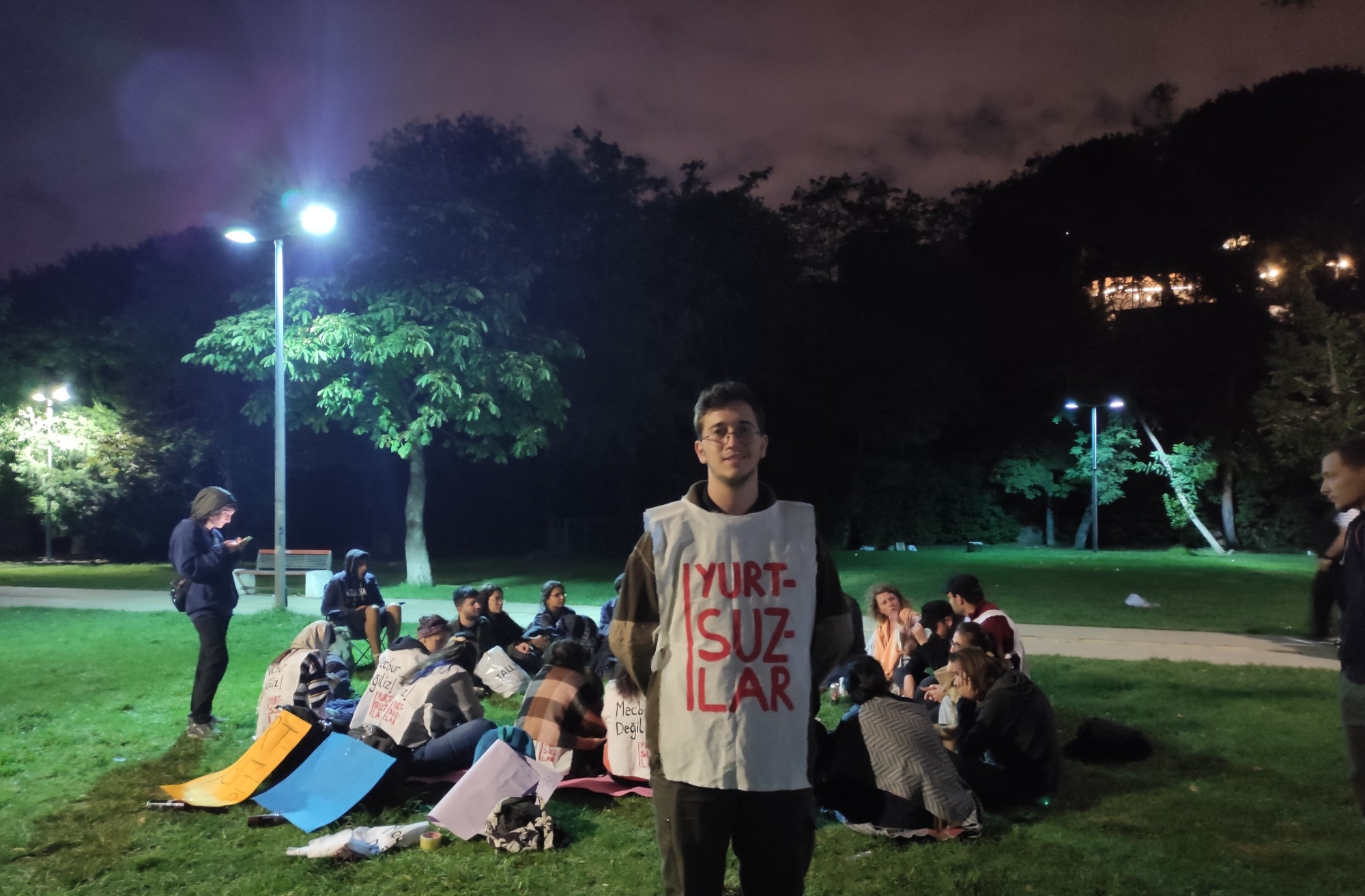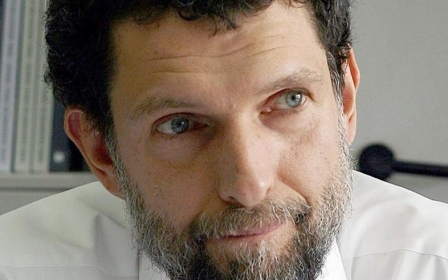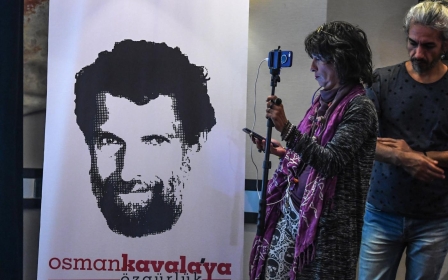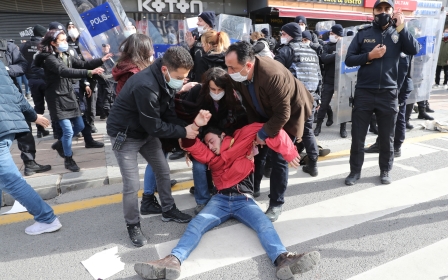Turkey: Student housing shortage sparks nationwide protests

“Shelter and food: if I cannot secure those two basic needs, how can I focus on studying?” asks 19-year-old university student Cihan Cicek, the voluntary spokesperson of a group calling itself the "Nomads".
The group has spent the last two nights outside in a public park in Istanbul to protest rocketing rent prices and a lack of dormitories.
According to research conducted by Bahcesehir University, in the span of a year rent prices soared 51 percent in Istanbul, 32 percent in Ankara and 31 percent in Izmir.
The situation is even worse in neighbourhoods near major universities. In Istanbul’s Rumeli Hisari area, which is a popular choice for students at Turkey’s prestigious Bogazici University, rental costs are 290 percent higher than last year.
In 2020, in-person classes were halted under regulations to stem the spread of Covid-19, and many students returned to their hometowns to save money. While the lifting of the harshest pandemic restrictions had many excited to return to student life, university students have struggled with the harsh reality of sky-high inflation and an imbalance in real estate supply and demand - sparking a nationwide debate.
‘I can’t keep up like this’
“I paid 700 lira ($81) for rent in a shared house last year. Now, I am living in a humid apartment and I have to pay 1,800 liras ($208) every month,” said Olcay Atik, a 22-year-old chemistry student.
“I applied for a room in my school dormitory, but there was no place left. Private dormitories are also either full or have raised their prices to a level that I cannot afford,” he added. “I am here in this park because I can’t keep on like this. I have to find a sustainable solution.”
President Recep Tayyip Erdogan reacted to the issue by asserting on Sunday that “ministers will observe the situation thoroughly and we will prevent any injustice or wrongdoing”. He also tweeted that the number of dormitories across the country had increased from 190 to 769 in his 18 years in power.
Mert Olcay Aksay, a member of the student syndicate, told Middle East Eye that their list of demands was very concise.
“We want rent subsidies for university students,” he said. “We believe that rent prices should be supervised by the state. And of course, we want more state-sponsored dormitories near universities.”
In the meantime, some people have been taking matters into their own hands to help students. Former news anchor and current children's book writer Ceren Kerimoglu opened her house to a student who cannot afford to pay for shelter. She has called for others on social media to come to the aid of students in need, with comments being shared and praised by thousands of people.
But while Kerimoglu’s generosity has helped one lucky student, the wider issue remains, and protests have been spreading.
The first sit-in started in Istanbul’s Yogurtcu Park on Sunday. After two nights, the number of protesters had increased, with the student syndicate calling for “midnight protests” in 11 major cities and inviting people to join the nearest public parks to raise their voices about the issue every night between 9pm and midnight.
The protests were calm in most locations - except in Ankara’s Ilhan Erdost Park, where police detained nine people and dismantled tents in the park.
Clash of words
While demonstrations have been largely peaceful, the issue has led to a war of words on the political scene.
Republican People’s Party (CHP) MP Mahmut Tanal attended the sit-in at Yogurtcu Park, spending Sunday and Monday nights with the students.
“Not even 10 percent of [student housing] demand is fulfilled by state-sponsored dormitories. Where can our students stay? It has been 20 years and they have not solved this problem!” he tweeted on Sunday.
Meanwhile, Taylan Yildiz, a member of Istanbul’s municipality who attended a sit-in in Istanbul’s Sairler Park, accused the government of “being asleep at the wheel”.
“The number of university students increased from 1.5 million (in 2002) to 8.2 million. But in the last ten years, only two dormitories have been built in Istanbul,” he told local newspaper Sozcu on Monday. “We are trying to achieve what should have been done by the government in the past 20 years.”
Muhammet Emin Akbasoglu, the deputy parliamentary group chair of the ruling Justice and Development Party (AKP), defended the government’s record.
“When we came to power in 2002, state dormitories’ capacity was 182,000. We expanded that number to 720,000,” he told parliament. “In the last five years, 90 percent of applicants have been housed in state-sponsored dormitories.”
For Nizamettin Asa, head of the Istanbul Chamber of Real Estate, the debate on dormitories could be solved with a different approach.
“Students can come together and rent an apartment in Istanbul. They would spend 5,000 lira ($579) for the rent and 2,000 lira ($231.5) for the bills. This is a cheaper solution than applying to a private dormitory,” he told Milliyet newspaper last week.
But Hilal, a literature student who attended the protest in Sairler Park, was quick to point out the flaws in Asa’s suggestion.
“Seven thousand lira ($810) is not convenient for any student in a country where the minimum wage is less than 3,000 lira ($347),” she told MEE on Tuesday night.
The minimum monthly wage in Turkey is 2,826 lira ($327) as of January, with the annual inflation rate jumping to 19.25 percent in August - pointing to a larger issue than student housing.
“The economic situation of Turkey and governance mistakes are at the root of the problem we are facing, as much as the coronavirus pandemic,” said Cicek, the Nomads’ spokesperson. “We are having a hard time affording rent, buying some healthy food and paying the bills.
“Some of my friends are considering leaving school. I will not. This is why I am sleeping in a park.”
Middle East Eye propose une couverture et une analyse indépendantes et incomparables du Moyen-Orient, de l’Afrique du Nord et d’autres régions du monde. Pour en savoir plus sur la reprise de ce contenu et les frais qui s’appliquent, veuillez remplir ce formulaire [en anglais]. Pour en savoir plus sur MEE, cliquez ici [en anglais].




